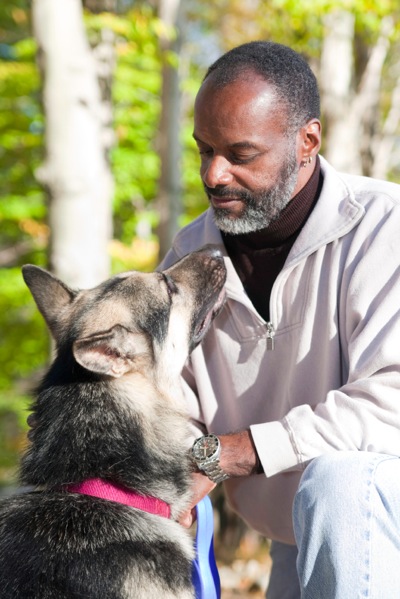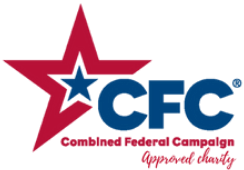To help with the treatment of PTSD, the Department of Veterans Affairs (VA) has established educational centers for both veterans suffering from the condition and for friends and family members who want to learn more about it. Several support organizations and group therapy programs have also been formed to help struggling families.
 While PTSD programs have been established to help veterans needing in-patient care, there have been far fewer for those seeking out-patient treatment. Aside from group sessions or occasional visits with a psychiatrist, veterans suffering from PTSD are generally left to rely on themselves – a method which isn’t always effective.
While PTSD programs have been established to help veterans needing in-patient care, there have been far fewer for those seeking out-patient treatment. Aside from group sessions or occasional visits with a psychiatrist, veterans suffering from PTSD are generally left to rely on themselves – a method which isn’t always effective.
In 2006 alone, the number of veterans seeking treatment for PTSD was 254,930. The number nearly doubled in 2010, reaching 408,167 veterans seeking treatment for PTSD, and that number is expected to grow again as 40,000 troops return home by the end of 2011. While yoga, meditation, and acupuncture have all been successful alternative PSTD treatment options, none is proving to be as effective as psychological service dogs.
A study that is currently being conducted is trying to determine if in fact, man’s best friend is a highly effective treatment option for PTSD. So far, the study intends to distribute 230 dogs to veterans located throughout Florida and Colorado with the help of service dog training organizations such as Guardian Angels Medical Service Dogs, Inc.
Dogs are not just given at random to veterans. Each is matched and trained to fit the specific needs of the veteran who will be put in charge of his or her pet’s care.
“We talk to each veteran and find out exactly what their challenges are,” stated Carol Borden, the Executive Director for Guardian Angels Medical Service Dogs. “There are multitudes of things we can teach the dogs to do, depending on each individual’s circumstances.”
Although each dog is trained to fit the needs of its prospective owner, every dog is trained to look for general signs of stress or anxiety. If a dog notices its owner to be experiencing any of these emotions, it responds with licking, cuddling or simply demanding to be petted. As pets draw attention to themselves, veterans are less consumed by their own anxiety.
For former Airman Ian Lord, a 25-year-old veteran suffering from PTSD, having his therapy dog, Jonas, makes his symptoms more manageable. “He makes it a lot easier to recover from a trigger, like the sounds of a helicopter overhead,” states Lord. He discussed his full experiences with the program with the Chicago Tribune.
To ensure that both the veteran and dog are adequately cared for, the VA will provide assistance to all veterans with a therapy dog. Veterans will receive $75 to cover the cost of food, and will be provided with six free veterinary visits each year, which will include the costs of vaccinations and other pet care necessities.
The veterans suffering form PTSD that begin the program will also be required to attend quarterly visits over the two-year study. In addition to receiving $10 for attendance, the veterans and their dogs will be given evaluations to determine effectiveness.
Through the study, researchers are hoping to prove a positive correlation between PTSD treatment and the use of a psychological therapy dog. Researchers will evaluate this claim by looking for overall mental health improvements in veterans as they bond more closely with their dogs. It is expected that therapy dogs will indeed increase the speed of recovery in veterans suffering from PSTD.
~ Guest post provided by Matt Puettmann. Matt is a Content Manager at VA Mortgage Center .com, the nation’s number one dedicated VA lender, and can be reached at mpuettmann [at] vamc [dot] com.
Message from Pets for Patriots: we support the study of psychiatric and therapy dogs as a treatment approach for veterans and others who suffer with PTSD. Many veterans who adopt through our charitable program deal with PTSD every day, and tell us that their honorably adopted companion pets give them renewed purpose in life, allowing them to live more normal, social and productive lives. Learn more about their real-life stories and about service and other types of support dogs.











My husband suffers from PTSD. Our six year old white shephard passed unexpectedly due to blood clots. Life is not the same for my husband who has become very depressed and his anxiety has sky-rocketed. My wish for him is to have another shephard fro help him with this terrible debilitating decease.
Hi P4P,
Interesting study – glad it works so well. PTSD is a horrible thing to go through. I have a friend who suffers from it.
Affection and distraction would be very effective. It’s natural for pet to express love and it’s also natural for a pet to want attention. Great for bonding too. Perfect.
I’m sure the pets enjoy it as well.
=^..^= Hairless Cat Girl =^..^=
Wonderful Story about a Very Effective Solution!!